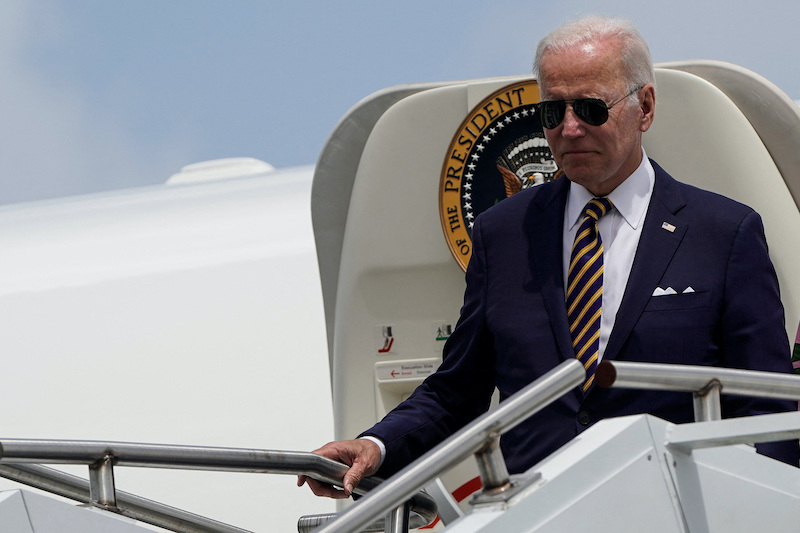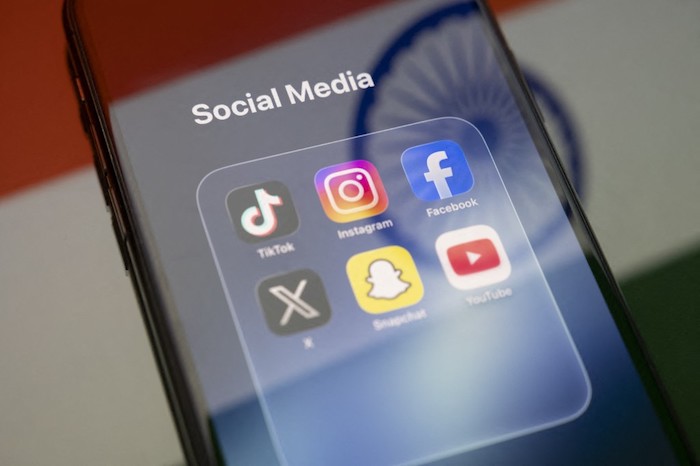China’s less than ferocious response to the US’s latest raft of trade tariffs on a whole host of its goods, is being read as a sign of a new emerging self-confidence in Beijing.
China’s measured response to the US targeting $18 billion of Chinese goods from syringes to batteries also suggests relations between the world’s two largest economies face more frost rather than a fresh firefight over trade, say observers.
China denounced the Biden administration’s action and vowed “resolute measures” to protect its interests.
But Beijing’s response also suggests a new dynamic compared with 2018 when Trump-era tariffs on $300 billion of Chinese goods touched off an escalating trade war, analysts said.
Also on AF: Chinese Firms Close in on High-End AI Memory Chips Coup
Among the differences between then and now are the Biden White House flagged potential measures to Chinese officials in advance and the tariffs target industries, including EVs and batteries, where the economic impact is limited and Chinese companies’ dominance appears unassailable.
In response to the tariffs, Chinese state media have shot back, accusing the United States of subverting its own free trade principles and taking action that threatens climate goals and will push up costs for American consumers.
In essence, the argument goes, you are hurting yourself.
That marks a break from the tone in 2018, when a Chinese negotiator said Washington was putting “a knife to China’s neck” and state media had suggested extreme counter-measures like a boycott of US food imports or a sell-off of US bonds.
“China can take the moral high ground,” said Wang Huiyao, founder and president of the Beijing-based think-tank Center for China and Globalization. “It doesn’t play around with those who break international standards and norms.”
In its starkest response, the Chinese commerce ministry said the White House had broken the spirit of an agreement to steady bilateral relations reached by Chinese President Xi Jinping and US President Joe Biden late last year in San Francisco.
China’s Rampant Automakers
Biden has said he wants to win this era of competition with China but not to launch a trade war, and US officials have looked to engage Beijing on limited areas of cooperation, including climate change.
China has time to punch back with targeted actions of its own before the tariffs go into effect, analysts said. But a lot has changed since the trade throwdown in 2018.
In that year, Chinese automakers built just under 800,000 electric vehicles. By 2023, EV output had jumped by a factor of eight times, China had surpassed Japan as the world’s biggest auto exporter and Chinese carmakers were cranking up expansion plans from Southeast Asia to Europe.
Huawei, which had been crippled by US sanctions in 2019, has bounced back, spearheading demand for China-made chips and challenging Apple in the China smartphone business and Tesla for EVs.
“What does not kill you makes you stronger,” Xinhua said in a commentary on the US tariffs. “It seems the famous quote applies to China’s technology companies.”
Beijing knew this round of tariffs was coming. In recent visits to China, US Treasury Secretary Janet Yellen and others had drove home a message that China’s industrial capacity to make more EVs, solar panels and batteries than its economy can absorb was a risk to American jobs and business.
Persistent Trade Gap
Chinese officials and state media have rejected that argument, saying the country’s EV makers dominate because of innovation and supply chain advantages, not subsidies.
The United States imported $427 billion in goods from China last year and exported $148 billion to the world’s No2 economy, a trade gap that has persisted for decades and become an ever more sensitive subject in Washington.
Both 2024 presidential candidates are taking a tough line on China ahead of November’s election, context Chinese officials understand, analysts said.
“Does China really want to go to the mat fighting over these tariffs?” said Sean Stein, chairman of the American Chamber of Commerce in China, who said the announced action was at the “far low end” of expectations. “The US rollout was restrained,” he added.
Beijing will also be considering who it would prefer to work with once the election is over.
“The thing about this Biden initiative is that it is election driven,” said Wang. “It is different to what Trump did, as he had already been president for one year and so was pursuing a trade war, rather than election.”
- Reuters with additional editing by Sean O’Meara
Read more:
Biden Ramps US Tariffs on Chinese EVs, Metals, PV Cells, Chips
Chinese Firms Seen Shifting Production Abroad to Avoid US Tariffs
US to Target Chinese Connected Cars Over National Security
Biden Scraps Tariff Exemption, to Protect US Solar Sector
























